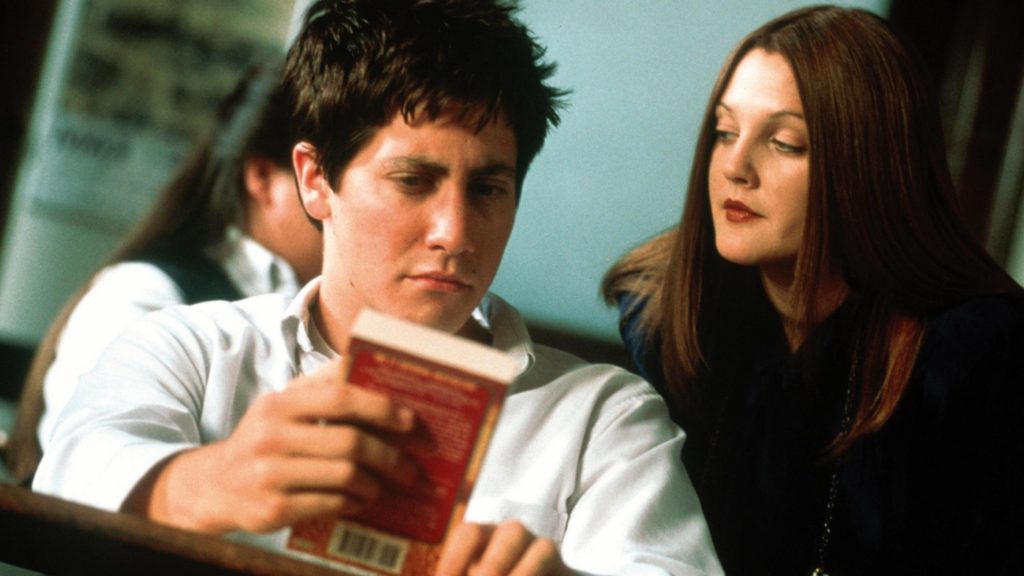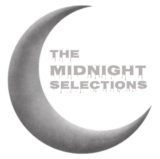Donnie Darko
2001

Rating: AA
Genre: Sci-Fi
Country: U.S.
Run-Time: 1h 53min
Director: Richard Kelly
Cast
Jake Gyllenhaal…………….Donnie Darko
Jena Malone…………………..Gretchen Ross
Maggie Gyllenhaal………Elizabeth Darko
James Duval…………………..Frank
When I first compiled The Midnight Selections, I’ll admit, Donnie Darko was one of the films I was most unsure about including. For one thing, I had not seen it in about eighteen years, and I was relying solely on my memory it being a great film. (At that time, this was the film we all picked up at the local Blockbuster because it was Curtis’ Staff Pick. And Curtis’ other picks included things like Eraserhead , A Clockwork Orange, and Persona.) But the worry that kept coming back to me was whether it had aged well?
Turns out, now that I’ve given it a re-watch, that in its original theatrical form, Donnie Darko is still great. But having done some research, I have also learned of a second Director’s Cut version of Donnie Darko is now floating around that replaces the original film’s ambiguities with convoluted explanations that came from an old website I also remember seeing eighteen years ago. This cut is also criticized for making ill-advised changes to the original film’s awesome 80s soundtrack. (Yeah, Darko was doing that set-in-the-80’s thing before that set-in-the-80’s thing was even a thing.) Sadly, director Richard Kelly interference with Donnie Darko is not unlike what George Locus has done to his original Star Wars trilogy- by tampering with the original, he has only made things worse.
But if you do get a chance to see the original theatrical version (look for Echo and the Bunnymen’s “The Killing Moon” to be played in the opening), I strongly recommend it. Today, the film, which is set in the 80s, surprisingly feels like a teen angsty holdover from the 90’s. But the stranger aspects of Donnie Darko also serve as a harbinger for the coming genre-fusing complexities of the modern horror film. And for this reason, it has a home in The Midnight Selections.
Donnie Darko is an odd a coming-of-age story about a teenage boy (played by Jake Gyllenhaal) with a habit of waking up in strange places, which is fortunate because it kept him out of the house the day a jet engine fell on his room. What Donnie does at night is part of the film’s mystery, but we do know it is connected to Frank, a man wearing a freaky-looking bunny costume that tells Donnie about the coming end of the world. Is Frank real or is he just a part of Donnie’s ongoing battle with schizophrenia?
At its core, Donnie Darko is a bit more social satire than it is a horror, sci-fi, or coming-of-age film. Like many quirky suburban satires, it employs a surreal type of dark comedy to make a its commentary. The major risk to these types of films is that when their quirkiness overtakes the tone, it dampens the connection the film’s critique has with the real-world. But Donnie Darko avoids this trap by grounding its quirkiest qualities to an interconnected world that intentionally aims to humanize its characters instead of turning them into ridiculous caricatures. For all of Darko’s visual flare (three sequences play could easily substitute for music videos), Kelly stays laser focused on keeping the story though-provoking. Almost every scene contains a detail or two that either helps explain the mystery or reveals something about a character’s backstory. And believe me, paying attention is mandatory.
And though it is not uncommon to place horror elements into dark suburban social satires, Kelly wisely keeps the film’s horror aspects, which are mostly connected to Frank, on the fringes of his off-beat world. Frank exists only in Donnie’s secret, private life, though the things he gets Donnie to do has very public consequences. But as the film progresses, Frank never turns into an object of ridicule or laughter to be used like he was some type of Stepford wife. By the film’s conclusion, after the big reveal, he is, and remains, an object of horror and perhaps, profound sadness.
It does not hurt that Gyllenhaal did a fantastic job playing the brooding emo-esque Donnie. In ever scene we continue to root for him despite his obvious flaws, including his own challenges with mental illness, and that has a lot to do with Gyllenhaal’s own personal charisma. He sells us on the idea that a schizophrenic adolescent could be the most rational person in a world where restrictive points of view seem to be winning the day. (If you have the time, it might be fun to watch this film as part of a double-feature with Daniel Isn’t Real).
But Darko’s supporting cast is one of the things that make this film truly special. Drew Barrymore, Patrick Swayze, Mary MacDonnell, Maggie Gyllenhaal. All that missing is for a young Seth Rogan to show up and say a line. Oh wait! There he is! How all this talent made it into a small budget film that barely got a theatrical release I do not know. But this odd assemble cast representing A-listers of multiple generations has only added to the film’s cult appeal.
Though I’ll admit horror purists are going to find Donnie Darko lacking in actual horror (it was rated AA), its strange blend of horror, science fiction, coming of age drama, and suburban dark comedy makes it a refreshing entry to The Midnight Selections. So many movies set up an extraordinary mystery, only to fail to deliver on the ending. But Kelly’s ability to deliver on his promise is the main reason his film has been so revered. After watching the film, its amazing to see how many pieces satisfyingly fall into place, particularly with the superior theatrical cut which wisely kept the right pieces still up in the air. It is not that unlike watching The Wailing, a film I recognized as brilliant after I accepted it could never be conclusively understood. And like The Wailing, religion is interwoven into the film’s fabric. Ironically, if you can avoid the pitfalls of Kelly’s pseudo-scientific attempts at world-building trappings (i.e. stick to the theatrical version), than when you hit that point where the story becomes paradoxical, you can fill the void with the help of the film’s own references to faith and salvation. And this, for so many, has been enough of an explanation to declare the film a true indie masterpiece.
